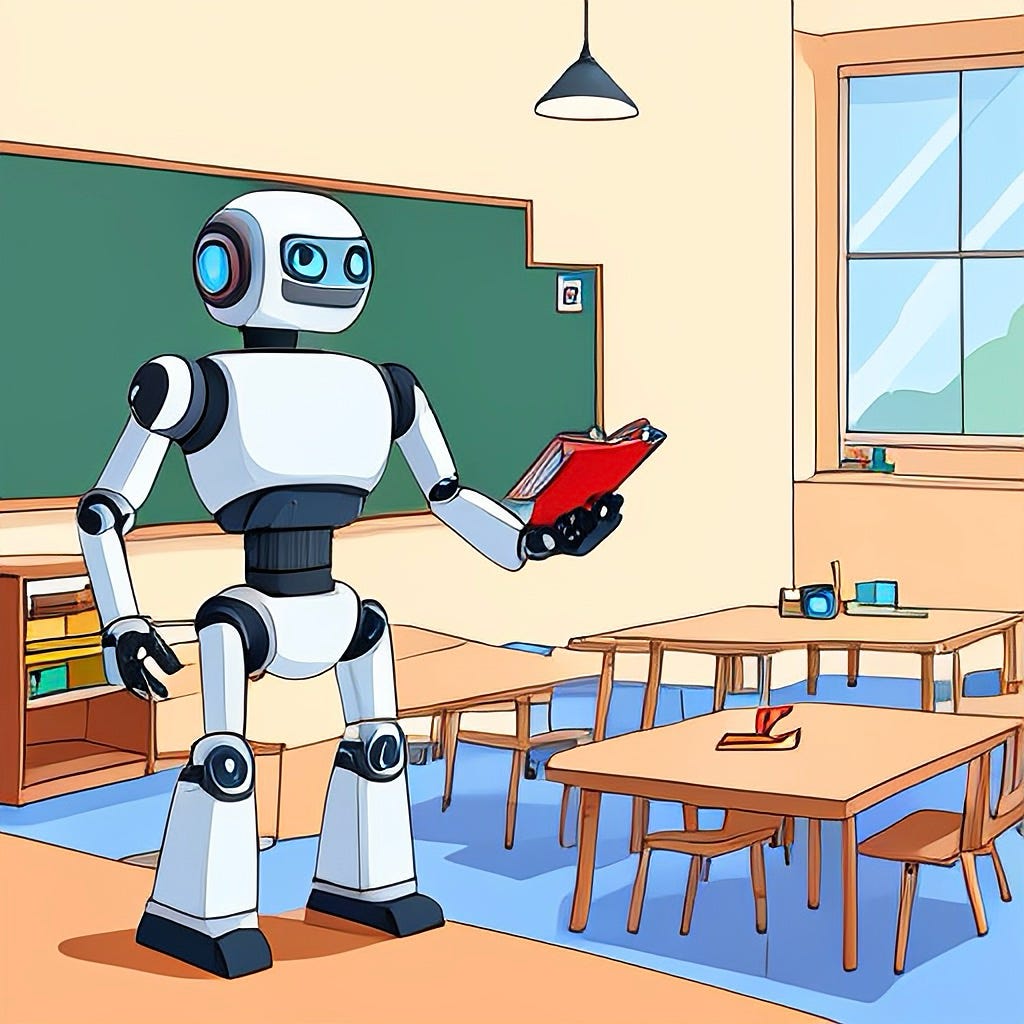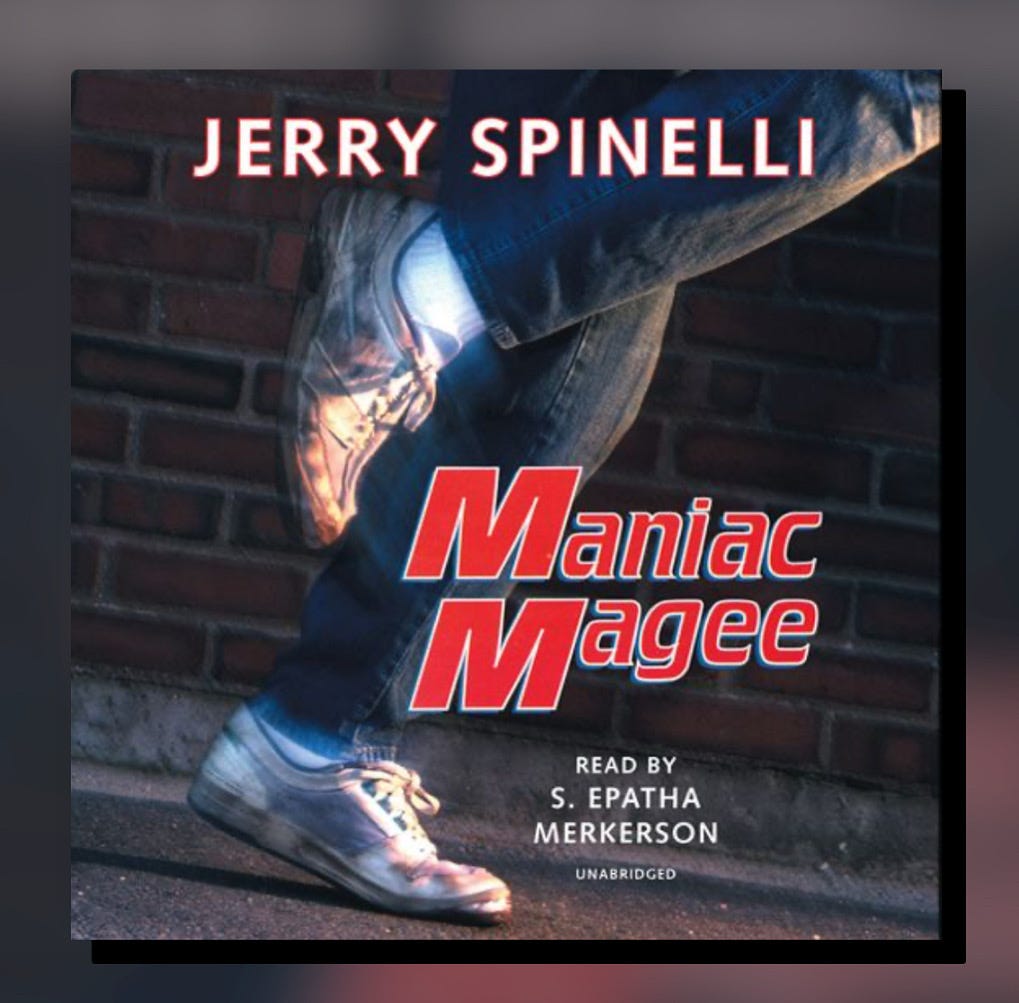Boring Robots
Developing a humble skepticism
Understatement of the year: I love technology.
If you’ve been reading this newsletter for any length of time I’m sure it won’t surprise you to hear that I’m a technophile at heart. But the longer I’ve worked with educational technologies, the more skeptical I’ve become. I’ve also had enough encounters with “the future” to know that it rarely lives up to the sales pitch.
Case in point: when our family bought a new home a few years ago, our bank gave us a gift when we closed on our loan: a Roomba. I was giddy. If you are, like me, of a certain age, you might remember Rosie the Robot from The Jetsons? This futuristic family had a robotic maid who cooked, cleaned, and did the laundry. And with the Roomba’s addition to our home, my inner child imagined I was finally inching closer to this incredible future.
Reality, though? The Roomba got stuck under the couch, missed crumbs in the corners, and once even tried to hurl itself down the basement steps when we accidentally left the door open. My dream of a robot maid quickly ended up in storage—literally.
In his lovely book, The Life We’re Looking For, Andy Crouch has a phrase for this: “boring robots.” Robots are amazing in our imagination, Crouch says, but often underwhelming once they arrive.
And honestly, generative AI sometimes feels like a boring robot, too. The first interactions can feel magical! But after the sparkle wears off, the limits show up: essays that sound the same, ideas that feel half-baked, students tempted to skip the hard work of thinking for themselves. It’s not Rosie the Robot. It’s something else entirely.
So here we are, living in a “technopoly,” as Neil Postman named it—a culture where technology is not just a tool, but a powerful, shaping force in how we think, learn, and live. And technology seems omnipresent, doesn’t it? Even in school? What are we supposed to do? Ban it? Embrace it? Pretend it’s Rosie and hope for the best?
I’d suggest another way forward: developing a humble skepticism.
By skepticism, I don’t mean cynical dismissal. Instead, it’s the gentle-but-clear discernment that asks good questions before we rush headlong into the latest innovation. What promises does this technology make? How likely are those promises to hold true? What will I gain—and what will I lose—by bringing this into my classroom?
And here’s the heart of it for me: can I use this tool in ways that actually help me love my neighbor and cultivate the fruit of the Spirit? Because if a technology pushes me—or my students—toward shortcuts that avoid the very work we were created to do, something’s off.
Work, after all, is part of God’s good design for Creation. Check out Genesis 2:15:
The Lord God took the man and put him in the Garden of Eden
to work it and take care of it.
This verse reminds us that work itself is good, part of God’s original design. Work existed before the Fall!
That said, the Fall certainly distorts our relationship with work, making us long for escape. Remember the curse in Genesis 3:17:
Cursed is the ground because of you;
through painful toil you will eat food from it
all the days of your life.
Sin twists and taints everything—including our relationship with our work.
But the call to create, tend, and build still echoes in us.
This has me thinking about ways that tools like AI—or even Roombas—are complicated inventions. Human creativity is part of how we reflect the image of our Creator, after all, and our capacity to innovate is part of that image-bearing. But the stink of sin fouls our most amazing creations.
So we have to be discerning, yeah? These powerful tools can free us from drudgery, sure, but they can also tempt us to dodge the very kind of formative, human work that grows wisdom, creativity, and character. Work is a good thing, and it’s a part of how we are created to be. I think we need to work on recapturing that sense—and probably help our students to do so as well. Maybe we all need to learn that “Work is fun!” as my Grandpa Mulder famously used to say.
Thinking about how to move forward in a world where generative AI seems to be playing a larger and more visible role every day, I’m contemplating the story in Matthew 10 where Jesus sends out his disciples on their first adventure in preaching about the Kingdom of God, the Lord blessed them on their way with this advice: “Be wise as serpents and innocent as doves.” In my thinking, that feels just right for Christian educators in this tech-saturated world: we need sharp discernment, paired with humility and gentleness. We can raise thoughtful questions without being jerks about it. We can doubt bold claims without losing hope in God’s good design.
Maybe generative AI is not Rosie the Robot any more than my tumbled-down-the-stairs Roomba is; maybe they’re both “boring robots.” But I want to challenge you, with humble skepticism and Spirit-led wisdom, to keep learning about ways to use AI that might help us do the right kind of work—the kind that forms us, blesses others, and brings a little more restoration into the world. What do you think?
Dave’s Faves
Here are three things I’m absolutely loving right now that I hope you might love too…
Dave’s Fave #1: The Rise Up Summit
I’m excited to be part of something meaningful this October—the Rise Up Summit, a free online event (think teacher retreat!) for Christian educators in public and private schools.
In the midst of all the confusion in our world, this summit is designed to equip you to teach with clarity, confidence, and Christ-centered purpose. There are a wide variety of sessions focusing on many different joys and challenges of the profession: teaching effectively, reducing your stress, and finding ways to reach each student.
I’ll be sharing two sessions: Teaching Christianly: How to Live Out our Faith in Day-to-Day Choices, and A Biblical Approach for Thinking about AI in Education. I’d love for you to join us.
The summit is totally free, but you do need to register. You can join sessions live on October 16-18, or watch on-demand after that. Get all the details & save your seat by heading to http://riseupchristianeducators.com.
Dave’s Fave #2: Maniac Magee, by Jerry Spinelli
If you follow my Instagram, you’ve maybe already seen this one…but I finally read the book Maniac Magee, by Jerry Spinelli, and this is one of the best books I’ve read all year. Here was my Instagram review…
My latest read is still more kid-lit. This time, I *finally* got around to reading Maniac Magee, by Jerry Spinelli. In the years I taught middle school, I bet 30 kids recommended this book to me (we had a thing where I would recommend books to them and they would share their favorites with me.) And while I often took their recommendations, for whatever reason, I never did end up reading Maniac Magee. I’m so glad I did now—it’s one of the best books I’ve read this year!
Maniac Magee’s real name is Jeffrey Magee, and he is a legend. He is homeless by choice; after being orphaned at a young age when both of his parents died in a trolley accident, he goes to live with his aunt and uncle who can’t stand each other, and he eventually runs away. Now a young adolescent, he makes his own way in the world, literally running everywhere, using a combination of confidence, naivety, compassion, curiosity, and raw athletic talent to face challenges both personal and interpersonal.
He earns the nickname “Maniac” because he is both fearless and deeply caring, shown through his bold actions and compassion for others. He bravely crosses racial lines in a divided town, unafraid to live with Amanda Beale’s Black family or walk into East End as a white boy. His courage is matched by kindness, especially when he risks confronting Mars Bar, the local bully, not to fight but to understand him and later even invites him to the McNab house, hoping to bridge divides. Maniac also shows concern for the neglected McNab brothers, trying to offer them a better life despite their father’s racism. Even when hiding out and living in the buffalo pen at the zoo, Jeffrey doesn’t complain—he chooses to stay hidden rather than burden others. Maniac’s mix of bravery and empathy defines him, as he constantly puts others’ needs before his own, searching for belonging and peace. It’s an amazing and encouraging story of the difference one person can make in the lives of those around him, if you are open to being your own authentic self.
It’s a great book for middle schoolers…and middle-agers. Two big thumbs up from Dr. Dave!
Dave’s Fave #3: Seven Swans by Sufjan Stevens
Sufjan Stevens might not be everyone’s taste, and even for me his work isn’t always a go-to music choice. That said, I can listen to Seven Swans pretty much anytime. Acoustic folk-rock with deep spiritual themes and biblical imagery here—give it a listen, and drop a comment to let me know what you think.
The Last Word!
Thank you to those of you who’ve reached out and asked me about my AI book in the past couple of weeks. I wish I had an update I could share! I’m in a holding pattern, waiting on a cover and word from my publisher that we are moving into production. I know they are working on the final typesetting now, since I’ve finished my proofing of the completed copyedited manuscript, which means we are close! I’m hoping I might have a special edition of this newsletter to share the title and the cover sometime very soon…but we shall see.
In the meantime, three of the six articles in my series on AI for Christian educators are out on the ACSI blog, and three more should be coming in the month of September. You can read them here, if you’re interested:
A Christian Imagination for AI: Scripture, Screens, and the Shape of Our Souls
Becoming a Truth-Seeker: Reimagining AI through the Big Story of Scripture
Peeking Inside the Black Box: Demystifying Artificial Intelligence
The titles of the three that are still to come:
Teaching in the Age of AI: Imagination, Wisdom, and the Work Only Humans Can Do
Learning and Leading with AI: Teaching, Technology, and Courage to Grow
AI and Christian Imagination: Toward a Theology of Educational Technology
I hope that you’ll be blessed and encouraged by reading them! And I’m eager to let you know when my book will be out—I’ll share it here and over on Instagram and LinkedIn as soon as I know!






